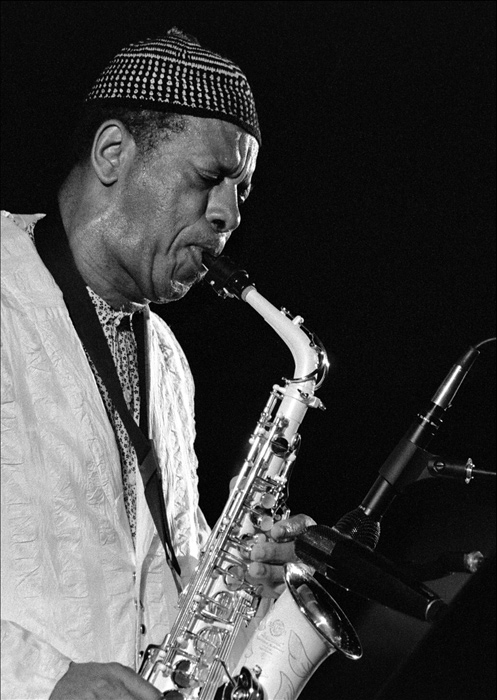|
Disconnected (Greymachine Album)
''Disconnected'' is the debut album by experimental music act Greymachine, featuring Justin Broadrick, Aaron Turner, Dave Cochrane (musician), Dave Cochrane and Diarmuid Dalton. Produced by Broadrick, it was released on 4 August 2009 via Turner's own record label, Hydra Head Records. In February 2018, ''Disconnected'' was reissued as a limited 2xLP with unique artwork and clear vinyl. The track "Vultures Descend" was released as a limited edition promotional single on 12 May 2009. Musical style Regarding ''Disconnected's'' style, Broadrick said: According to AllMusic's Phil Freeman, the songs on ''Disconnected'', "most of which run in the eight to nine-minute range, all feature a heavy combination of huge beats, Sludge metal, sludgily dissonant guitar riffs, Industrial music, industrial electronics, and raw-throated howls." "Drone (music), Droning soundscapes layered into weighted guitar riffs, feedback and general noise" are also present on the record. These take influence f ... [...More Info...] [...Related Items...] OR: [Wikipedia] [Google] [Baidu] |
Greymachine
Greymachine is an experimental music project founded in 2006. It is led by Godflesh and Jesu (band), Jesu frontman Justin Broadrick. The act also features Isis (band), Isis frontman and guitarist Aaron Turner, Jesu bassist Diarmuid Dalton and Head of David bassist Dave Cochrane (musician), Dave Cochrane. Broadrick started Greymachine as a solo project with some "drum beats I'd recorded, along with very abstract, improvised guitar parts and lot's [sic] of synth noise." He eventually enlisted other contributors for the project. The debut album of the act, ''Disconnected (Greymachine album), Disconnected'', was released on 4 August 2009, via Turner's own record label, Hydra Head Records. Allmusic described the album as "one of the most anticipated metal records of the year." The track “Vultures Descend” from the album was released as a promotional recording, promotional single. About the project, Broadrick stated: "Most of my music has a strong sense of misanthropy. Greymachine ... [...More Info...] [...Related Items...] OR: [Wikipedia] [Google] [Baidu] |
Throbbing Gristle
Throbbing Gristle were an English music and visual arts group formed in 1975 in Kingston upon Hull by Genesis P-Orridge, Cosey Fanni Tutti, Peter Christopherson, and Chris Carter (British musician), Chris Carter. They are widely regarded as pioneers of industrial music. Evolving from the experimental performance art group COUM Transmissions, Throbbing Gristle made their public debut in October 1976 on COUM exhibition ''Prostitution'', and released their debut single "United/Zyklon B Zombie" and debut album ''The Second Annual Report'' the following year. Lyrical themes mainly revolved around mysticism, extremist political ideologies, sexuality, dark or underground aspects of society, and idiosyncratic manipulation of language. The band released several subsequent studio and live albums—including ''D.o.A: The Third and Final Report of Throbbing Gristle'' (1978), ''20 Jazz Funk Greats'' (1979), and ''Heathen Earth'' (1980)—on their own record label Industrial Records, buildin ... [...More Info...] [...Related Items...] OR: [Wikipedia] [Google] [Baidu] |
Godflesh
Godflesh are an English industrial metal band from Birmingham. The group formed in 1982 under the title Fall of Because but did not release any complete music until 1988 when Justin Broadrick (guitar, vocals and programming) and G. C. Green ( bass) renamed the band and decided to use a drum machine for percussion. Melding heavy metal with industrial music and later with electronic music and dub, Godflesh's sound is widely regarded as a foundational influence on other industrial metal and post-metal acts and as significant to both experimental and extreme metal. The band signed to Earache Records in the late 1980s and released their debut album '' Streetcleaner'' (1989) to contemporary and lasting acclaim. After the release of their sophomore album ''Pure'' (1992) and their major label debut '' Selfless'' (1994), they started experimenting with live drums as well as hip hop and breakbeat sounds. The resulting albums, ''Songs of Love and Hate'' (1996) and ''Us and Them'' ... [...More Info...] [...Related Items...] OR: [Wikipedia] [Google] [Baidu] |
The Quietus
''The Quietus'' is a British online music and pop culture magazine founded by John Doran and Luke Turner. The site is an editorially independent publication led by Doran with a group of freelance journalists and critics. Content ''The Quietus'' primarily features writings on music and film, as well as interviews with a wide range of notable artists and musicians. The magazine also occasionally includes pieces on literature, graphic novels, architecture, and TV series. The website is edited by John Doran, who claims that it caters for "the intelligent music fan between the age of 21 and, well, 73". Its staff list includes former writers for publications such as '' Melody Maker'', '' Select'', ''NME'' and '' Q'', including journalist David Stubbs, BBC Radio 1 DJ Steve Lamacq, Professor Simon Frith and Simon Price among others. Among its best known columns is its "Baker's Dozen," in which artists select 13 personal favourite albums. Content from the site's interviews have been ... [...More Info...] [...Related Items...] OR: [Wikipedia] [Google] [Baidu] |
Free Jazz
Free jazz is an experimental approach to jazz improvisation that developed in the late 1950s and early 1960s when musicians attempted to change or break down jazz conventions, such as regular tempos, tones, and chord changes. Musicians during this period believed that the bebop, hard bop, and modal jazz that had been played before them was too limiting. They became preoccupied with creating something new and exploring new directions. The term "free jazz" has often been combined with or substituted for the term "avant-garde jazz". Europeans tend to favor the term "free improvisation". Others have used "modern jazz", "creative music", and "art music". The ambiguity of free jazz presents problems of definition. Although it is usually played by small groups or individuals, free jazz big bands have existed. Although musicians and critics claim it is innovative and forward-looking, it draws on early styles of jazz and has been described as an attempt to return to primitive, often re ... [...More Info...] [...Related Items...] OR: [Wikipedia] [Google] [Baidu] |
Noise Music
Noise music is a genre of music that is characterised by the expressive use of noise within a musical context. This type of music tends to challenge the distinction that is made in conventional musical practices between musical and non-musical sound. Noise music includes a wide range of musical styles and sound-based creative practices that feature noise as a primary aspect. Noise music can feature acoustically or electronically generated noise, and both traditional and unconventional musical instruments. It may incorporate live machine sounds, non-musical vocal techniques, physically manipulated audio media, processed sound recordings, field recording, computer-generated noise, stochastic process, and other randomly produced electronic signals such as distortion, feedback, static, hiss and hum. There may also be emphasis on high volume levels and lengthy, continuous pieces. More generally noise music may contain aspects such as improvisation, extended technique, cacophony ... [...More Info...] [...Related Items...] OR: [Wikipedia] [Google] [Baidu] |
Feedback
Feedback occurs when outputs of a system are routed back as inputs as part of a chain of cause-and-effect that forms a circuit or loop. The system can then be said to ''feed back'' into itself. The notion of cause-and-effect has to be handled carefully when applied to feedback systems: History Self-regulating mechanisms have existed since antiquity, and the idea of feedback had started to enter economic theory in Britain by the 18th century, but it was not at that time recognized as a universal abstraction and so did not have a name. The first ever known artificial feedback device was a float valve, for maintaining water at a constant level, invented in 270 BC in Alexandria, Egypt. This device illustrated the principle of feedback: a low water level opens the valve, the rising water then provides feedback into the system, closing the valve when the required level is reached. This then reoccurs in a circular fashion as the water level fluctuates. Centrifugal governors were ... [...More Info...] [...Related Items...] OR: [Wikipedia] [Google] [Baidu] |
Drone (music)
In music, a drone is a harmonic or monophonic effect or accompaniment where a note or chord is continuously sounded throughout most or all of a piece. A drone may also be any part of a musical instrument used to produce this effect; an archaic term for this is ''burden'' (''bourdon'' or ''burdon'') such as a "drone ipeof a bagpipe", the pedal point in an organ, or the lowest course of a lute. Α ''burden'' is also part of a song that is repeated at the end of each stanza, such as the chorus or refrain.Brabner, John H F., ed. (1884). The national encyclopædia', Vol. V, p.99. Libr. ed. William McKenzie. . Musical effect "Of all harmonic devices, it droneis not only the simplest, but probably also the most fertile." A drone effect can be achieved through a sustained sound or through repetition of a note. It most often establishes a tonality upon which the rest of the piece is built. A drone can be instrumental, vocal or both. Drone (both instrumental and vocal) can be place ... [...More Info...] [...Related Items...] OR: [Wikipedia] [Google] [Baidu] |
Industrial Music
Industrial music is a genre of music that draws on harsh, mechanical, transgressive or provocative sounds and themes. AllMusic defines industrial music as the "most abrasive and aggressive fusion of rock and electronic music" that was "initially a blend of avant-garde electronics experiments (tape music, musique concrète, white noise, synthesizers, sequencers, etc.) and punk provocation". The term was coined in the mid-1970s with the founding of Industrial Records by members of Throbbing Gristle and Monte Cazazza. While the genre name originated with Throbbing Gristle's emergence in the United Kingdom, artists and labels vital to the genre also emerged in the United States and other countries. The first industrial artists experimented with noise and aesthetically controversial topics, musically and visually, such as fascism, sexual perversion, and the occult. Prominent industrial musicians include Throbbing Gristle, Monte Cazazza, SPK, Boyd Rice, Cabaret Voltaire, and Z'E ... [...More Info...] [...Related Items...] OR: [Wikipedia] [Google] [Baidu] |
Sludge Metal
Sludge metal (also known as sludge or sludge doom) is an extreme subgenre of heavy metal music that originated through combining elements of doom metal and hardcore punk. It is typically harsh and abrasive, often featuring shouted vocals, heavily distorted instruments and sharply contrasting tempos. The Melvins from the US state of Washington produced the first sludge metal albums in the mid-late 1980s. Characteristics The key characteristics of both sludge and doom metal are a slow tempo combined with down-tuned, heavily- distorted guitars to deliver the heaviest feel that is possible. The drummer must be able to lead the band through the slow parts of a piece with an accurate time feel, which is much harder to achieve when compared with playing faster pieces. Sludge metal includes sections of the aggression, shouted vocals and occasional fast tempos of hardcore punk. As ''The New York Times'' wrote on The Melvins, "The shorthand term for the kind of rock descending from ea ... [...More Info...] [...Related Items...] OR: [Wikipedia] [Google] [Baidu] |
AllMusic
AllMusic (previously known as All Music Guide and AMG) is an American online music database. It catalogs more than three million album entries and 30 million tracks, as well as information on musicians and bands. Initiated in 1991, the database was first made available on the Internet in 1994. AllMusic is owned by RhythmOne. History AllMusic was launched as ''All Music Guide'' by Michael Erlewine, a "compulsive archivist, noted astrologer, Buddhist scholar and musician". He became interested in using computers for his astrological work in the mid-1970s and founded a software company, Matrix, in 1977. In the early 1990s, as CDs replaced LPs as the dominant format for recorded music, Erlewine purchased what he thought was a CD of early recordings by Little Richard. After buying it he discovered it was a "flaccid latter-day rehash". Frustrated with the labeling, he researched using metadata to create a music guide. In 1990, in Big Rapids, Michigan, he founded ''All Music Guide' ... [...More Info...] [...Related Items...] OR: [Wikipedia] [Google] [Baidu] |




